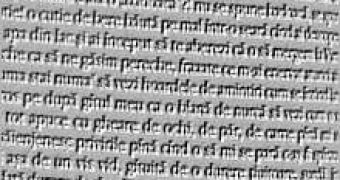Pediatric researchers at the Yale School of Medicine have identified a gene called DCDC2, located on the human chromosome 6. This gene is linked to dyslexia, a reading disability affecting millions of children and adults.
The researchers also found that a genetic alteration in DCDC2 leads to a disruption in the formation of brain circuits that make reading possible. This genetic alteration is transmitted within families.
"These promising results now have the potential to lead to improved diagnostic methods to identify dyslexia and deepens understanding of how the reading process works on a molecular level," said lead author Jeffrey R. Gruen, M.D., associate professor in the Pediatrics Department.
To facilitate reading, brain circuits need to communicate with each other. In reading disabilities, these circuits are disrupted. In people with dyslexia, compensatory brain circuits are inefficient and they have a hard time learning to read.
Locating this gene provided researchers with part of the reason why dyslexia occurs. Gruen said the discovery of the gene and its function will lead to early and more accurate diagnoses and more effective educational programs to address the unique needs and special talents of people with dyslexia.

 14 DAY TRIAL //
14 DAY TRIAL //